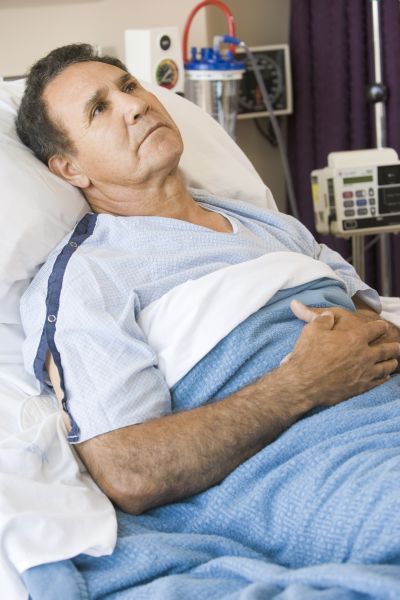'Thought reading' brings hope for vegetative state patients

Your support helps us to tell the story
From reproductive rights to climate change to Big Tech, The Independent is on the ground when the story is developing. Whether it's investigating the financials of Elon Musk's pro-Trump PAC or producing our latest documentary, 'The A Word', which shines a light on the American women fighting for reproductive rights, we know how important it is to parse out the facts from the messaging.
At such a critical moment in US history, we need reporters on the ground. Your donation allows us to keep sending journalists to speak to both sides of the story.
The Independent is trusted by Americans across the entire political spectrum. And unlike many other quality news outlets, we choose not to lock Americans out of our reporting and analysis with paywalls. We believe quality journalism should be available to everyone, paid for by those who can afford it.
Your support makes all the difference.Doctors have managed to read the thoughts of a car crash victim diagnosed to be in a vegetative condition, using brain scanning techniques that could mark a breakthrough for thousands of patients.
A 22-year-old man who had been considered to be in a vegetative state since an automobile accident five years ago managed to answer "yes" and "no" to a team of doctors using functional Magnetic Resonance Imaging (fMRI) to scan his brain.
Patients in a vegetative state are awake, not in a coma, but have no awareness due to severe brain damage.
The research team from Britain and Belgium, whose findings were first published in the online version of the New England Journal of Medicine on Wednesday, believe the technique could help doctors avoid making false diagnoses.
By helping doctors accurately ascertain whether a patient is mentally responsive, the technique "will change patient care, improve our diagnostics and avoid useless treatment," Belgian neuropsychologist Audrey Vanhaudenhuyse told AFP.
The car crash victim had not responded to any external stimuli, leading others to conclude he was in a vegetative state. When the British-Belgian team examined him, they found small signs of consciousness.
"But we couldn't communicate with him," Vanhaudenhuyse said.
The team had already examined a number of healthy people using fMRI, viewing which parts of their brains reacted when asked to respond to simple "yes" or "no" questions by imagining playing tennis or walking around a room.
They then placed the patient into an MRI. "We asked him the same things, to imagine he was playing tennis to respond to questions. And he succeeded," said Vanhaudenhuyse.
"That confirms he is not in a vegetative state."
The researchers' success has not revolutionised the life of the young man, although he has now returned home and receives better adapted care, including therapy that might help improve his capacity to communicate.
But they are aware of the implications of better diagnostic techniques - both to stop administering useless treatment and giving false hopes to family members.
"We should now sit down around the table with the medical community, all the disciplines together, and legal experts, and settle the ethical implications of this research," said Professor Steven Laureys, who led the study in Belgium.
Vanhaudenhuyse noted that "we are not there to give definitive answers on when a patient should be euthanised or not... Our work allows avoiding errors, and taking well-founded decisions."
She was also concerned the technique would give false hopes to families.
"What we don't want to say is that all patients diagnosed as being in vegetative states can communicate," she said.
Of 54 patients with problems of consciousness they tested, only five displayed brain activity when asked questions, and only the 22-year-old car crash victim was able to "communicate."
But "we've known for a long time that with unconscious patients that the absence of proof is not proof of absence," said Vanhaudenhuyse.
bur/ylf/rl/oh
Join our commenting forum
Join thought-provoking conversations, follow other Independent readers and see their replies
Comments